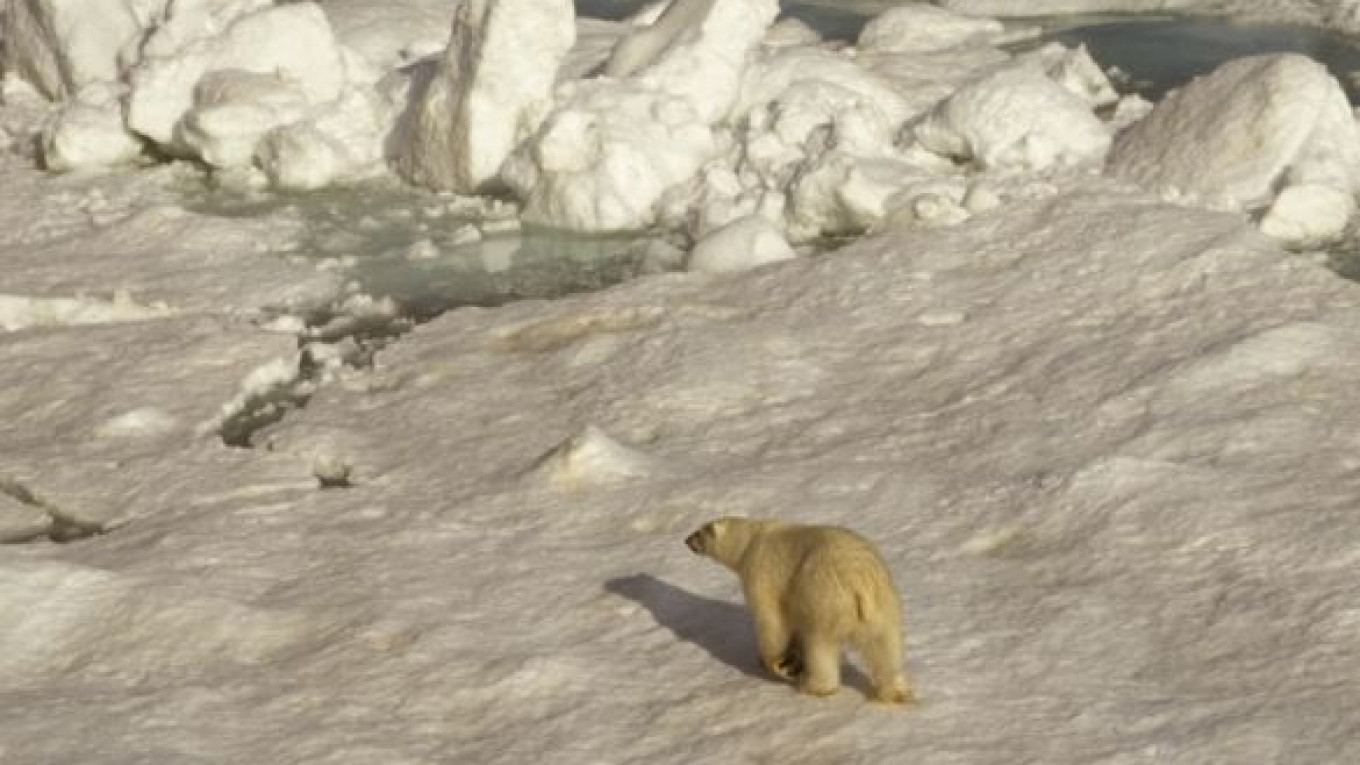Ambitious Arctic drilling plans by oil giant BP encroach on key nature reserves, threatening native polar bear and whale populations, the World Wildlife Fund said.
The conservation group said a deal last month allowing BP and Russian state-run major Rosneft access to untapped reserves in the Kara Sea violated the boundaries of two Russian national parks in one of the world's last true wildernesses.
The environmentalists say the area licensed by the Russian government to the oil majors for exploration through 2040 encroaches on some 45 square kilometers of protected land.
A WWF map shows the Novaya Zemlya archipelago enclosing the Kara Sea to the North and the Yamal Peninsula jutting into the sea's southern shore — areas that could be threatened by the drilling.
"Surely we are not so desperate for oil that we will tear down the boundaries of protected areas to get it," Alexei Knizhnikov of WWF Russia said in a statement this week.
"These protected areas are now in peril. The natural values they were set up to protect — pristine ecosystems, the seabirds, the polar bears, the marine mammals — are in jeopardy," he added.
BP said the two oil majors "believe that we can carry out this exploration program safely and responsibly," a spokesman for BP in Russia said by telephone.
"Lessons learned from the Gulf of Mexico incident and spill will be carried through to this project," he added.
But experts warn that the damage from drilling in the fragile Arctic ecosystem or oil leaks under the ice could be far worse than in warmer deepwater climates.
The two oil companies say the three Kara Sea blocks could contain oil reserves equal to the volumes of the British North Sea, meaning a lucrative catch of about 60 billion barrels.
The Arctic park designated by Prime Minister Vladimir Putin on Novaya Zemlya in 2009 is one of the most important breeding grounds for polar bears, a year-round haven for walrus and home to the rare narwhal and Greenland whale, according to the Natural Resources and Environment Ministry.
WWF activists urged the government to pause oil and gas exploration in the fragile Arctic until strict regulations and preventive measures are put in place to protect the region's fauna.
"Parking oil rigs beside protected areas is definitely not going to help," Alexander Shestakov, director of the WWF's global Arctic program, said in the statement.
"In the light of the climate-driven changes in this region and across the Arctic, we need to be looking at ways in which we can help Arctic animals and peoples transition to a new and very different reality."
The government, the majority shareholder in Rosneft, gets more than 50 percent of its revenues from oil and gas, and Putin's stated aim is to keep producing more than 10 billion barrels a day through 2020.
A Message from The Moscow Times:
Dear readers,
We are facing unprecedented challenges. Russia's Prosecutor General's Office has designated The Moscow Times as an "undesirable" organization, criminalizing our work and putting our staff at risk of prosecution. This follows our earlier unjust labeling as a "foreign agent."
These actions are direct attempts to silence independent journalism in Russia. The authorities claim our work "discredits the decisions of the Russian leadership." We see things differently: we strive to provide accurate, unbiased reporting on Russia.
We, the journalists of The Moscow Times, refuse to be silenced. But to continue our work, we need your help.
Your support, no matter how small, makes a world of difference. If you can, please support us monthly starting from just $2. It's quick to set up, and every contribution makes a significant impact.
By supporting The Moscow Times, you're defending open, independent journalism in the face of repression. Thank you for standing with us.
Remind me later.






